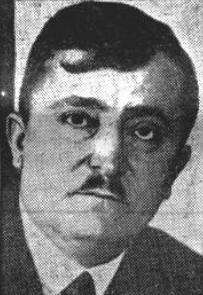Svetislav Milosavljević
| Svetislav Milosavljević | |
|---|---|
 | |
| Personal details | |
| Born |
September 7, 1882 Niš |
| Died |
July 28, 1960 Belgrade |
Svetislav "Tisa" Milosavljević (Serbian Cyrillic: Светислав Тиса Милосављевић; born 9 July 1882, died 28 July 1960) was a Yugoslav military architect and public officer. He was the first ban of the Vrbas Banovina, and during his rule between 1929 and 34 he significantly improved its capital city of Banja Luka, which today celebrates it as one of distinguished citizens. Afterwards, he was the Minister of Transport of the Kingdom of Yugoslavia.[1][2]
Biography
Svetislav was the eldest son of a wealthy Niš businessman, Toma Milosavljević. He planned to become an engineer, but his father's financial collapse forced him into the military profession. He became an authority on military traffic, while advancing at the end of 1925 to the rank of Brigadier General.

He arrived to Banja Luka on 8 November 1929. In a short time with a substantial state financial aid he helped develop the Vrbas Banovina, and in particular Banja Luka.[1] His greatest accomplishments include the Banska palata (now the city administration), Banski Dvor, the Banja Luka Theatre (founded in 1930 and today's building built 1934), Public Health Institute, the facilities and the Teacher's School of Agriculture, the east wing of the then Grammar School, and seven residential buildings for public officers (present-day Alley St. Sava and at the Post Office). He helped establish the Banate Museum, Association for Tourism and Craft and the Chamber of Commerce.[1]
Although not a direct investor, builder or founder, Milosavljević was credited for the emergence of the Banja Luka town park with a monument to Petar Kočić, upgrading the hotel Bosna, paving and street lighting, and for the construction of Sokolski Dom, City Municipality and the Hotel Palace.
He left Banja Luka and the ban appointment on 22 April 1934 to become a Minister of Transport of the Kingdom of Yugoslavia. He would return to Banja Luka only once more, on 18 May 1939, when he accepted the invitation of the Banja Luka Orthodox parish and came to the cathedral shrine. He was greeted by a crowd of 20,000.[1]
References
- 1 2 3 4 "Istaknute istorijske ličnosti Banjaluke (I): Ban Milosavljević - graditelj i vizionar" (in Serbo-Croatian). Banjaluka: Nezavisne novine. 30 March 2014. Retrieved 10 May 2017.
- ↑ "Otvaranje izložbe "Svetislav - Tisa Milosavljević, ban i ministar"". Banjaluka: Nezavisne novine. 9 June 2016. Retrieved 10 May 2017.